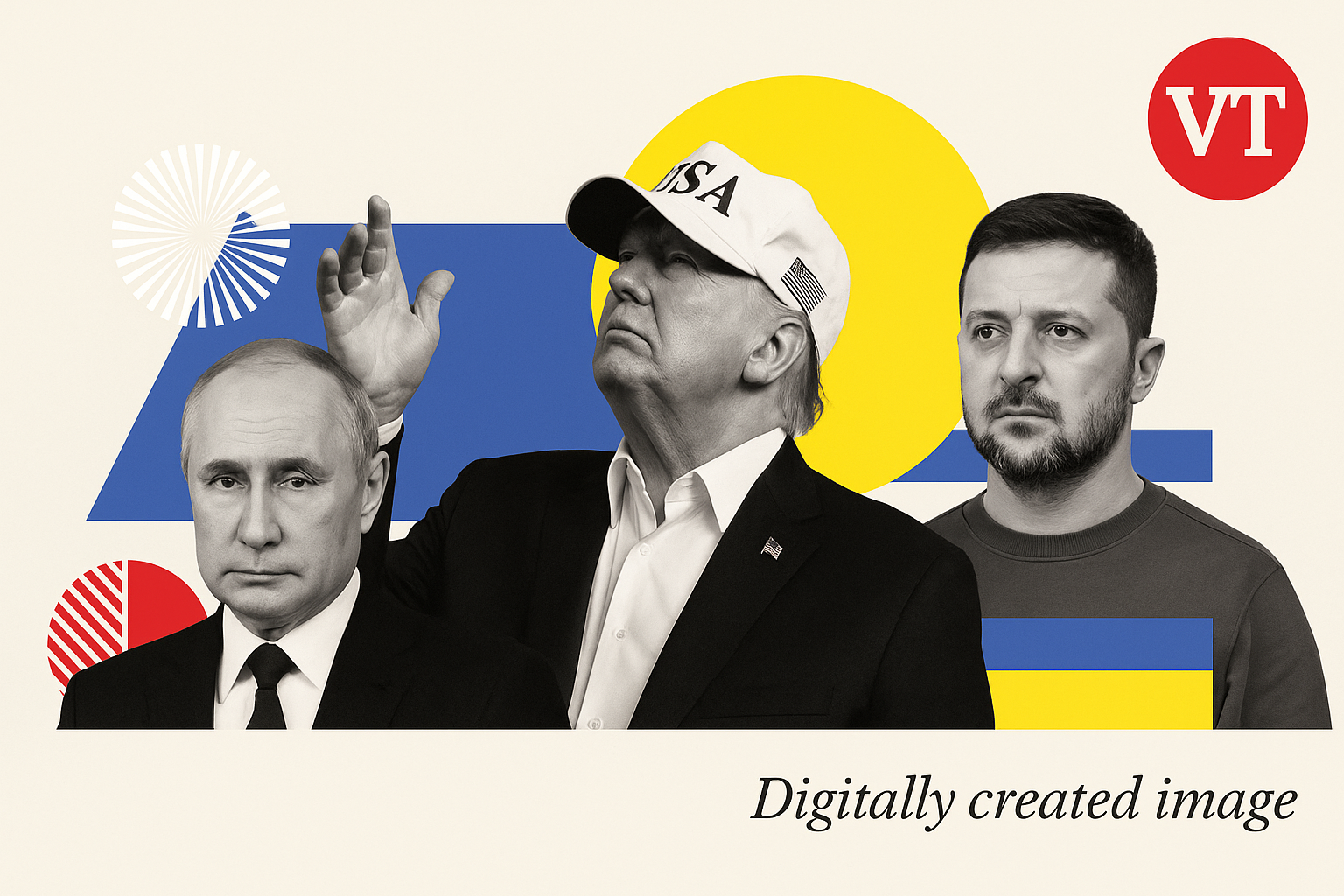- At an Alaska summit Friday, Russia signaled openness to a U.S.- and Europe-backed “Article 5-like” security guarantee for Ukraine as part of a broader deal to end the war, a U.S. official said.
- Trump envoy Steve Witkoff called the shift “game-changing,” noting it was the first time he’d heard Moscow agree to explore such protection for Kyiv.
- On Sunday (Aug. 17, 2025), President Trump posted, “BIG PROGRESS ON RUSSIA. STAY TUNED!” as discussions continue on mechanics, enforcement, and Europe’s role.
The Big Picture
According to a report by The Associated Press, Russian leader Vladimir Putin told President Donald Trump at their Friday meeting in Alaska that he would consider a framework allowing the United States and European allies to extend an “Article 5-like” protection to Ukraine as part of an eventual settlement. The concept, if formalized, could offer Kyiv a security umbrella resembling NATO’s collective defense while sidestepping Moscow’s long-standing objections to Ukraine’s NATO membership, the report said.
What’s New
Trump’s envoy Steve Witkoff, who participated in the talks, said it was “the first time” he’d heard Russia agree to explore such guarantees and described the development as “game-changing,” as reported by AP. Witkoff did not outline the fine print—how any mutual-defense pledge would be triggered, who would sign it, or how violations would be punished—but indicated the idea is now on the table for negotiators.
President Trump added public momentum on Sunday, writing on Truth Social, “BIG PROGRESS ON RUSSIA. STAY TUNED! President DJT”. The message underscores ongoing efforts to translate the Alaska discussions into a draft plan that addresses ceasefire terms, verification, and Ukraine’s longer-term security architecture.
What They’re Saying
Context
The emerging concept comes amid a flurry of allied signaling and diplomacy. Earlier today, Virginia Times reported that European leaders publicly backed U.S.-led talks and pledged tighter pressure on Russia, emphasizing that any settlement must uphold Ukraine’s sovereignty and include “ironclad” security guarantees. Separately, leaders of the Nordic-Baltic Eight reaffirmed that “no decisions on Ukraine without Ukraine” and supported efforts—including by President Trump—to reach a just peace. These statements outline the political runway for a protection regime that could be paired with a ceasefire and phased withdrawals.
Wider questions remain: how such guarantees would be codified; what role the EU, U.K., and Canada would play; whether the package would require U.S. congressional approval; and how compliance would be verified to deter renewed aggression.
Article 5: What Is NATO’s Collective-Defense Clause?
Article 5 of the North Atlantic Treaty is NATO’s core promise: if one Ally is the target of an armed attack, the attack is treated as an attack on all. Each Ally then helps “by taking such action as it deems necessary,” which can include the use of armed force, to restore and maintain security.
- How it’s triggered: NATO’s North Atlantic Council must agree that Article 5 applies to a specific attack or situation.
- Not automatic war: Each Ally decides the form of assistance—military, cyber, intel, logistics, etc.
- Used once: Invoked after the September 11, 2001 attacks on the United States.
- Article 4 vs. Article 5: Article 4 is for consultations; Article 5 is the mutual-defense commitment.
- Why it matters now: An “Article 5-like” pledge could aim to replicate NATO’s deterrent effect for Ukraine without formal membership; credibility depends on triggers, enforcement, and signatories.
What’s Next
Negotiators are expected to test draft language for a Ukraine security umbrella that specifies triggers, timelines, monitoring, and snap-back penalties for violations. European capitals will be central to defining enforcement and burden-sharing. Kyiv’s stance—grounded in security needs and territorial integrity—will ultimately determine whether an Article 5-style pledge is acceptable as an interim step or a settlement cornerstone.
The Bottom Line
For the first time, Moscow appears willing to discuss a defense pledge that approximates NATO’s shield for Ukraine. Whether that promise can be turned into a credible, enforceable guarantee—without giving Russia a veto—will decide if this weekend’s breakthrough becomes a pathway to a durable peace.
A global media for the latest news, entertainment, music fashion, and more.















